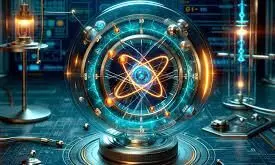
Revolutionary thorium-229 nuclear clock could unveil changes in fundamental physics
text_fieldsA groundbreaking advancement in atomic physics has been made with the development of the first nuclear clock based on thorium-229.
This clock, which boasts unprecedented precision, may provide insights into whether the fundamental constants of nature - such as the speed of light or the gravitational constant - change over time.
The achievement was spearheaded by Jun Ye and his research team at JILA in Boulder, Colorado.
In May 2024, graduate student Chuankun Zhang at JILA made a critical discovery, detecting a long-sought signal from the thorium-229 nucleus. This signal, which marks the nucleus switching between two states, was verified after careful examination. The discovery was a significant milestone, with Jun Ye, renowned for his work in building the world's most accurate atomic clock, becoming emotional upon seeing the result.
The thorium-229 nucleus possesses unique properties, making it highly sensitive to any potential variations in the universe's fundamental constants. By precisely measuring the transition in thorium-229, a measurement now achieved with million-fold accuracy compared to previous efforts, researchers hope to determine whether these constants have changed over time, reshaping our understanding of the universe.
Thorium-229's potential was first recognized in the 1970s when scientists discovered its unusually low-energy nuclear state, a property not found in other nuclei. This made thorium-229 an ideal candidate for an ultra-precise clock capable of probing the stability of fundamental constants.
This breakthrough holds vast potential for the future of physics.
Experts like Eric Hudson from UCLA and Hannah Williams from Durham University have emphasized that the thorium-229 nuclear clock could enable researchers to detect minuscule changes in physical laws that have previously gone unnoticed. This could lead to new discoveries in fundamental physics and further our understanding of the universe.





